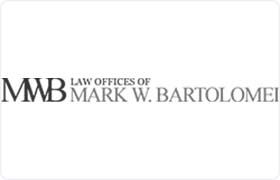 Sterling Child Custody Lawyers, Massachusetts
Sterling Child Custody Lawyers, Massachusetts
Sponsored Law Firm
-
 x
x

Click For More Info:
-
Law Offices of Mark W. Bartolomei
51 Union Street Suite G10 Worcester, MA 01608» view mapDivorce & Family More Than 20 Years of Dedicated Service
Worcester divorce and bankruptcy attorney for more than 20 years.
800-931-6101
Includes: Guardianships & Conservatorships, Custody & Visitation
Lawyers
1-3 of 3 matches
Mediation, Divorce, Child Custody, Personal Injury



 Mark Bartolomei Worcester, MA
Mark Bartolomei Worcester, MA AboutLaw Offices of Mark W. Bartolomei
AboutLaw Offices of Mark W. Bartolomei Practice AreasExpertise
Practice AreasExpertise